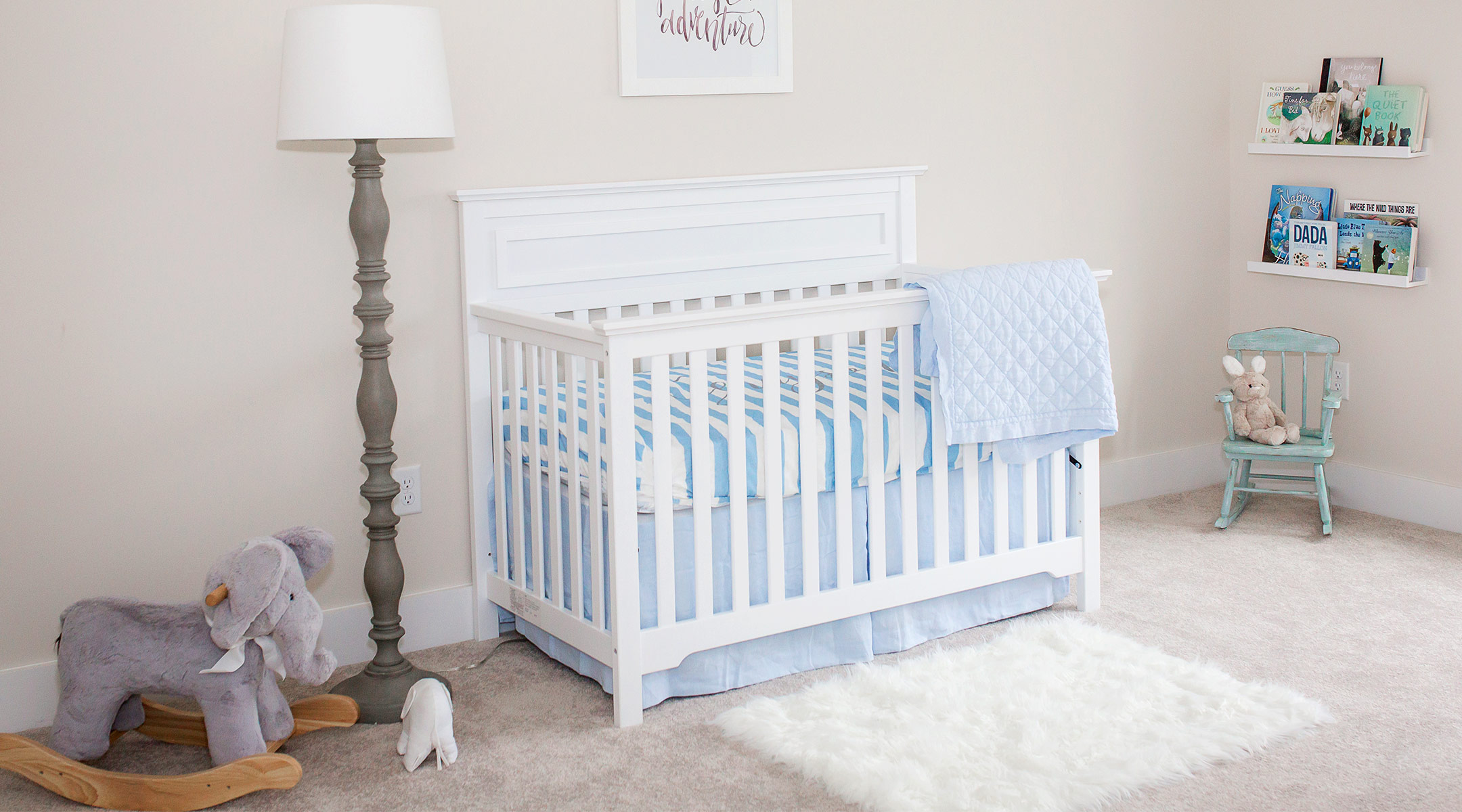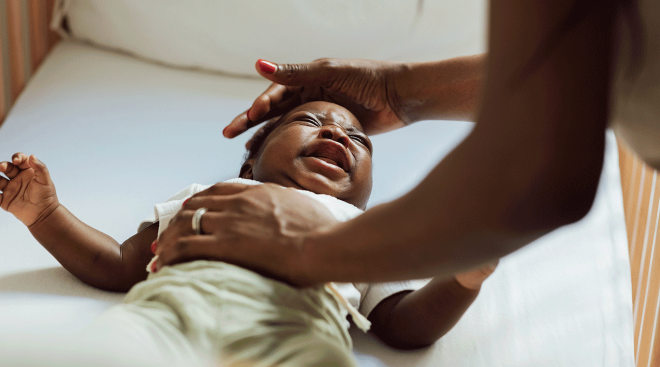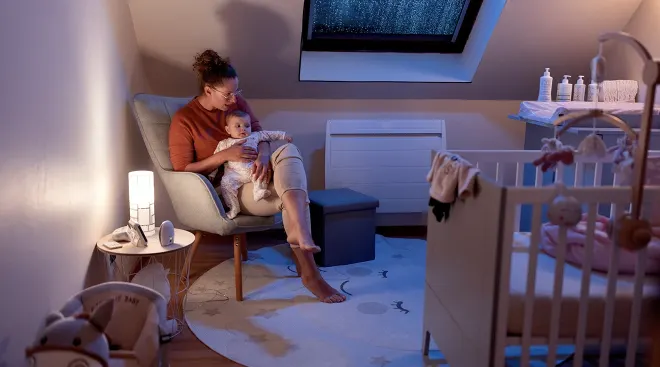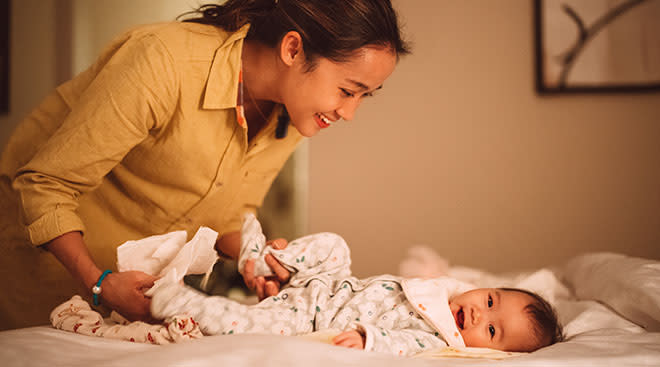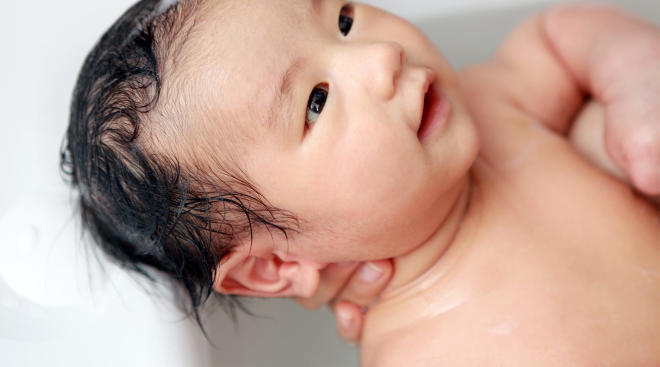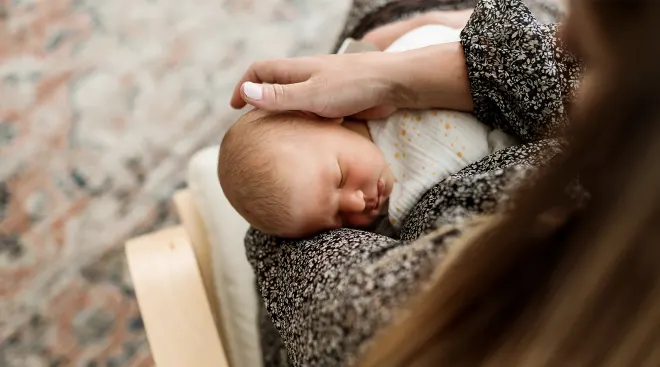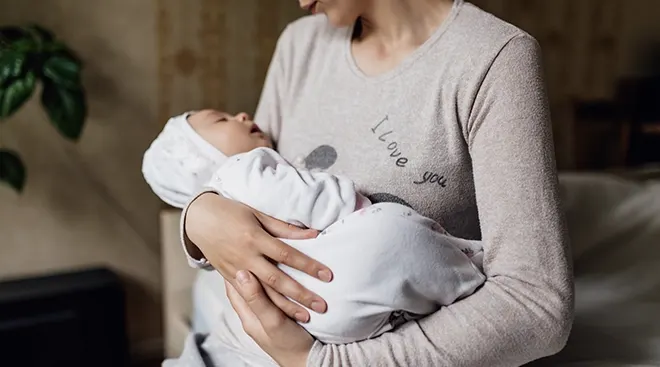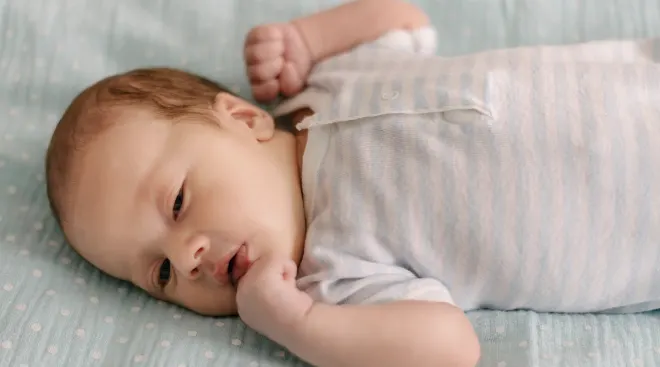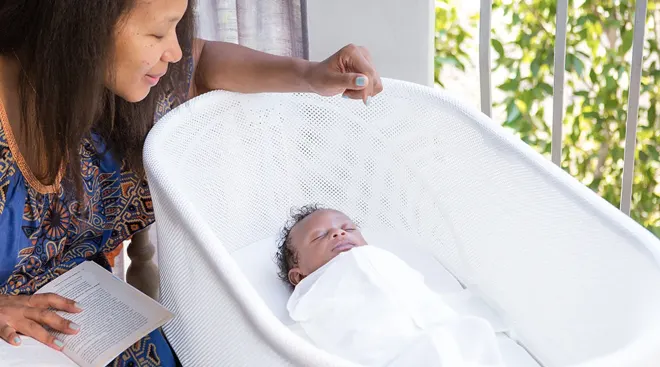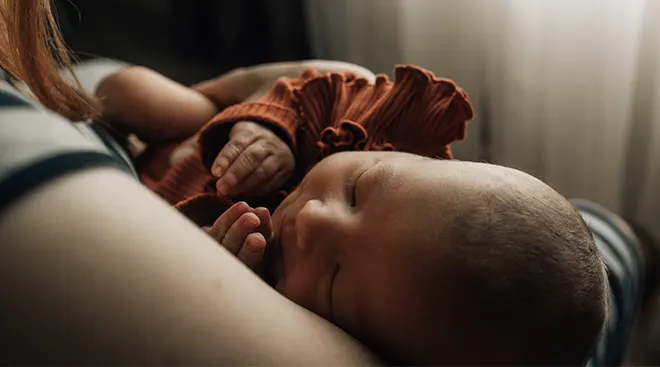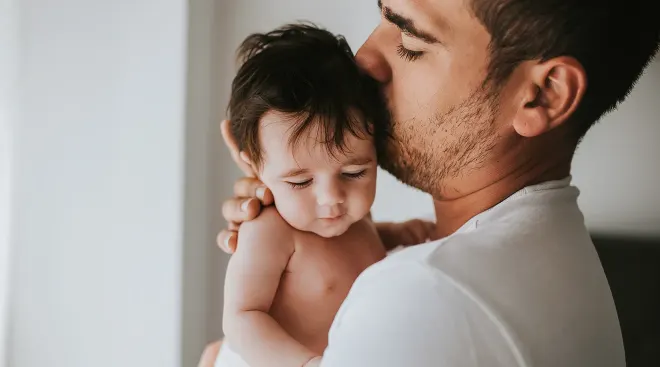How to Transition Baby to His Own Room
Chances are, your newborn will start out sleeping in your room. Not only is it considered the safest place for baby—and an ideal way to build that parent-child bond—it’s also convenient to have him close by for all those late-night feedings. But at some point, you’re going to want to reclaim your space. Which brings us to the key question: When to move baby to his own room? Here, experts explain how to know when your child is ready for the big switch, plus tips for transitioning baby to the crib.
According to the American Academy of Pediatrics, babies should sleep in their parents’ room—but not in the same bed—for at least the first six months of life, ideally for the whole year, to reduce the risk of Sudden Infant Death Syndrome (SIDS) by as much as 50 percent. Exactly why room-sharing dramatically lowers the likelihood of SIDS is still unclear, but it’s thought that having other people in the room makes baby sleep more lightly, possibly leading to a reduced risk. Keeping baby within mom’s reach also makes it easier to breastfeed, which, in and of itself, has been shown to slash the risk of SIDS by 70 percent.
Keeping baby in your bedroom for those first 12 months can also help boost your bond. “The parent-child relationship is greatly enhanced by allowing the child to sleep in your room as long as possible,” says S. Daniel Ganjian, MD, a pediatrician at Providence Saint John’s Health Center in Santa Monica, California. Baby learns he can count on you to be there as he adjusts to life outside the womb, he explains, and is comforted by the sounds of your breathing.
That said, a year is a long time, and it’s understandable—and totally okay—if you’re ready to move baby into her own room before then, says Ashanti Woods, MD, a pediatrician at Mercy Medical Center in Baltimore. “Every baby is different, and sometimes pediatricians recommend taking into account what’s best for everybody in the family,” he says.
Pam Edwards, a certified infant and child sleep consultant, agrees. “It really comes down to what works best for your family dynamic,” she says, pointing out that she’s helped families transition babies to their own rooms at 4, 6 and 12 months, and even later. Babies tend to become more alert and aware of their surroundings after 6 months, so the process can be more challenging after that age, she says, but “it’s by no means impossible.”
If you want to wait until the 12-month mark before transitioning baby to the crib, great! But if you’re ready to move baby before then, keep a few things in mind.
First, check with your pediatrician to make sure baby is growing well and doesn’t need middle-of-the-night feedings, Ganjian says. Another sign your child may be ready for the move? If she can roll over from her belly to her back, he says.
How long baby can sleep in a stretch matters too, Woods says. “If the baby is waking up every two, three or four hours, he might not be ready to move to the nursery,” he says. “If the baby can sleep for six hours or more, it’s a great time to consider shipping the baby out.” Even if he’s a great sleeper, consider logistics carefully. It’s important to be in close proximity to baby during the night so you can get to him quickly if something seems off, Woods says. If your bedroom and baby’s nursery are on the opposite sides of the house, you might want to wait the 12 months before moving baby into his own room.
First, it’s important to set up baby’s room for safe sleep. That means having a crib with a firm mattress and a fitted sheet, and keeping it completely clear of bumpers, toys and blankets. Becky Roosevelt, founder of Snug as a Bug Pediatric Sleep Consulting, also recommends having blackout window shades and a white noise machine.
Once everything is in place, start transitioning baby to the crib by having him take naps in the nursery to get him comfortable with sleeping in the new space, Woods says. Once he gets the hang of that, have baby sleep in his own room overnight. To help keep an eye on your little one, Woods recommends having a good video baby monitor that allows you to see and hear your child from any point in the house.
Having a sleep routine and sticking to it is essential for a smooth transition, Roosevelt says. She recommends going into the room for a diaper change, dimming the lights and reading a story, then turning the lights off and singing a lullaby while rocking baby to the point of drowsiness. Finally, put baby into the crib slowly and with a smile, and leave the room. “These cues are key to helping baby know that sleep is coming next and that it will be taking place in this cozy room,” she explains.
If you’re a little freaked out about your little one sleeping on her own, it’s fine for you to stay in baby’s room for the first few nights, Edwards says. But try not to stress about how baby is doing: Edwards says moving baby to her own room is often harder on the parents than on the child. If you try transitioning baby to the crib and it just doesn’t go well, it’s okay to move baby back to your room and try again in a month or so. “Don’t get discouraged,” Woods says. “Just because you didn’t get it at six months doesn’t mean you won’t get it at seven months.”
When it comes to moving baby to his own room, remember that he’s pretty resilient. “Even if we have a few tough nights, your child will learn to love his new sleep space if your give him that opportunity,” Edwards says. “Having your own room back won’t be so bad either.”
Please note: The Bump and the materials and information it contains are not intended to, and do not constitute, medical or other health advice or diagnosis and should not be used as such. You should always consult with a qualified physician or health professional about your specific circumstances.
Navigate forward to interact with the calendar and select a date. Press the question mark key to get the keyboard shortcuts for changing dates.
































